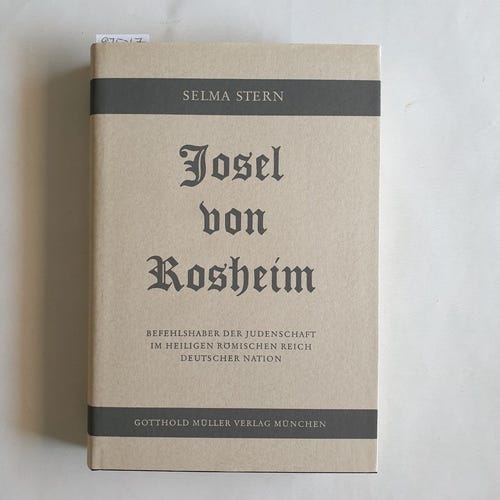The Man They Called Commander
The Dramatic Life of Josel of Rosheim
Until the 20th century, Jewish communities in Europe were fairly autonomous; they had their own governing councils and by and large they resolved their own disputes. Typically, the only contact they had with the ruling authorities was when taxes were collected, or at times of persecution, war or civil disturbance. If for any reason they needed to make representations to the rulers of the lands where they lived, they generally did so through specially appointed advocates or intercessors; a Jewish official known in Yiddish as a shtadlan.
When a local community appointed a shtadlan, they looked for someone who was articulate, intelligent and learned, who understood the culture of the Christian world and was able to make compelling arguments to support the cause he was advocating. He needed good diplomatic and leadership skills and he needed to be respected by his own community; he could only advocate on their behalf if people were prepared to abide by his decisions. Advocates like this didn’t come cheap, the shtadlan was often the highest paid official in the community, earning far more, for example, than the rabbis, who were often paid a pittance, or not at all, for their services.
The most famous of all the shtadlanim was Josel (also known as Yossel or Joseph) of Rosheim. He recorded his activities in a chronicle, of which only fragments have survived. His biographers have reconstructed much more of his life story from official reports and documents that mention his name. He lived a life full of drama, risk and danger. One day someone will make a film or TV series about him.

